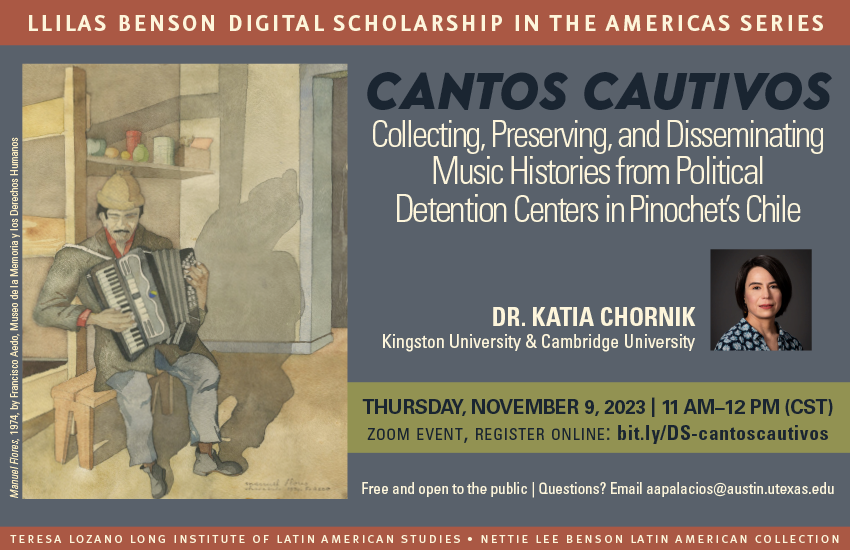Cantos Cautivos: Collecting, preserving, and disseminating music histories from political detention centers in Pinochet’s Chile
Thursday, November 9, 11:00-12:00 pm (CST), Zoom

LLILAS Benson “Digital Scholarship in the Americas” Speaker Series
Over a thousand political detention centers existed in Chile during the dictatorship led by General Augusto Pinochet (1973–1990). Music was commonly present in these places, where thousands were tortured, disappeared, and executed. This presentation focuses on the digital platform Cantos Cautivos (Captive Songs), led and edited by Dr. Katia Chornik, which compiles over 160 testimonies of music activities and music pieces composed, performed, and listened to in thirty-seven compounds. After outlining her broader research on music and memory, Dr. Chornik will discuss the history and technical aspects of the Cantos Cautivos platform, as well as the strategies the team has used to obtain and promote materials and drive engagement. She will provide a broad-brush view of the repertoire and testimony themes, paying particular attention to sources deviating from canonical narratives of political detention. Finally, Dr. Chornik shall reflect on the challenges and opportunities a project such as Cantos Cautivos can generate for digital scholarship.
Dr. Katia Chornik is Impact Development Manager at Kingston University and Research Associate at Cambridge University’s Centre of Latin American Studies. Her research focuses on Latin American cultural history. She is the author of Alejo Carpentier and the Musical Text (Routledge, 2015) and Captive Songs: Music and Political Detention in Pinochet’s Chile (Oxford University Press, forthcoming), and the editor of the digital project Cantos Cautivos, compiling testimonies of music experiences under political detention.
Registration is open through Zoom.